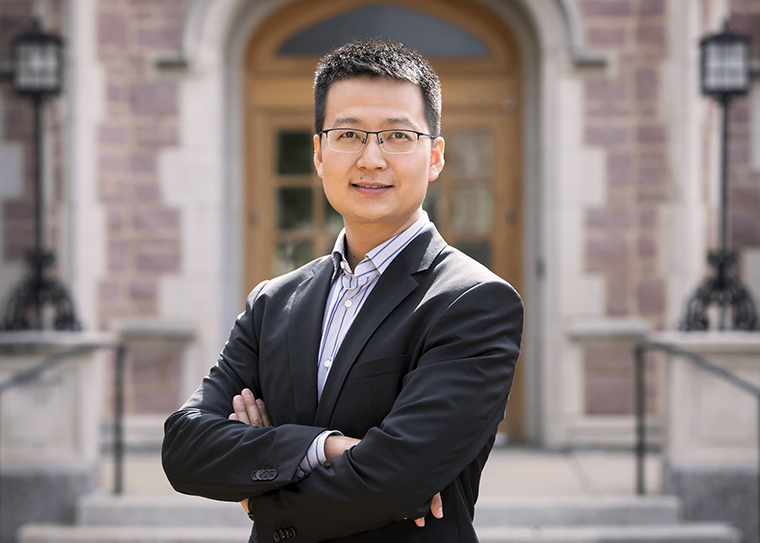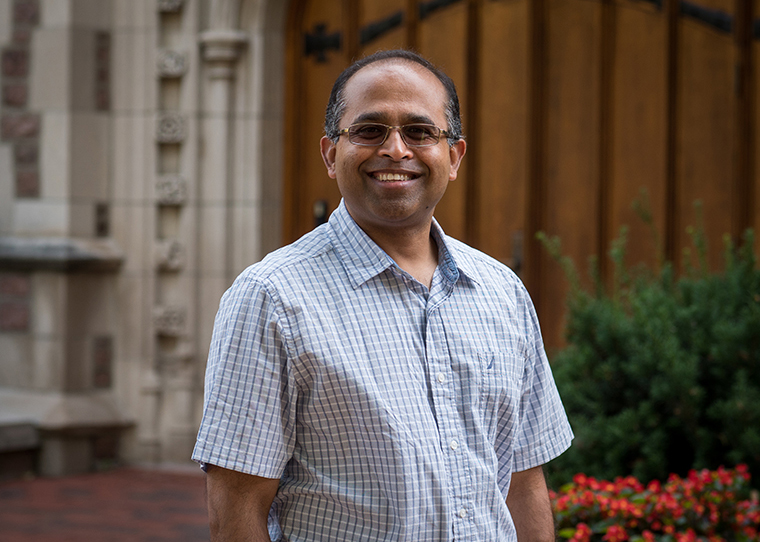Two Washington University in St. Louis faculty members are being honored by the Academy of Science - St. Louis for their contributions to science: Peng Bai, an associate professor of energy, environmental and chemical engineering at the McKelvey School of Engineering, and Ram Dixit, a professor and chair of biology in Arts & Sciences. The awards will be presented at the Outstanding St. Louis Scientists Awards Ceremony April 3 at the Missouri Botanical Garden.

Bai, who is developing next-generation batteries, was chosen for the Innovation Award, which recognizes a scientist or engineer, age 40 or under, who has demonstrated exceptional potential for future accomplishments in science, engineering or technology.
Bai's research group combines theoretical and experimental approaches to developing new materials, electrodes and batteries. The physics-based mathematical modeling and analytical electrochemistry research findings and tools developed in his lab also apply to and benefit the design of other electrochemical energy systems including supercapacitors and fuel cells.
Recently, Bai's team was the first to show that a solid-state electrolyte has a high level of similarity to liquid electrolytes, which is good news for designing safer and more efficient solid-state batteries based on reliable mechanistic knowledge. His team also is developing highly efficient, low-cost sodium-based batteries as an alternative to lithium and other rare elements used in traditional batteries. He is an affiliate of the university's Institute of Materials Science & Engineering. He received a CAREER Award from the National Science Foundation in 2021.

Dixit, who studies the molecular machinery that constructs plant cell walls, was chosen for the Fellows Award, which recognizes a distinguished individual for outstanding achievement in science.
Dixit's research elucidates the mechanisms underlying plant cell morphogenesis — the process by which plants develop their shape and structure. He focuses on the cortical microtubule cytoskeleton, which defines plant cell shape by serving as a scaffold for cell wall assembly. Dixit's research group conducts its work using a combination of live imaging, in vitro reconstitution at single-molecule resolution, molecular genetics and computational modeling.
Dixit is a principal investigator with the National Science Foundation (NSF) Science and Technology Center for Engineering Mechanobiology, a WashU-Penn partnership. The center advances the study of mechanical forces in molecules, cells and tissues in plants and animals. Dixit has published in Science, the Proceedings of the National Academy of Sciences, The Plant Cell, The Plant Journal, Current Biology and Nature Plants, among others. Dixit received a CAREER Award from the NSF in 2015.






